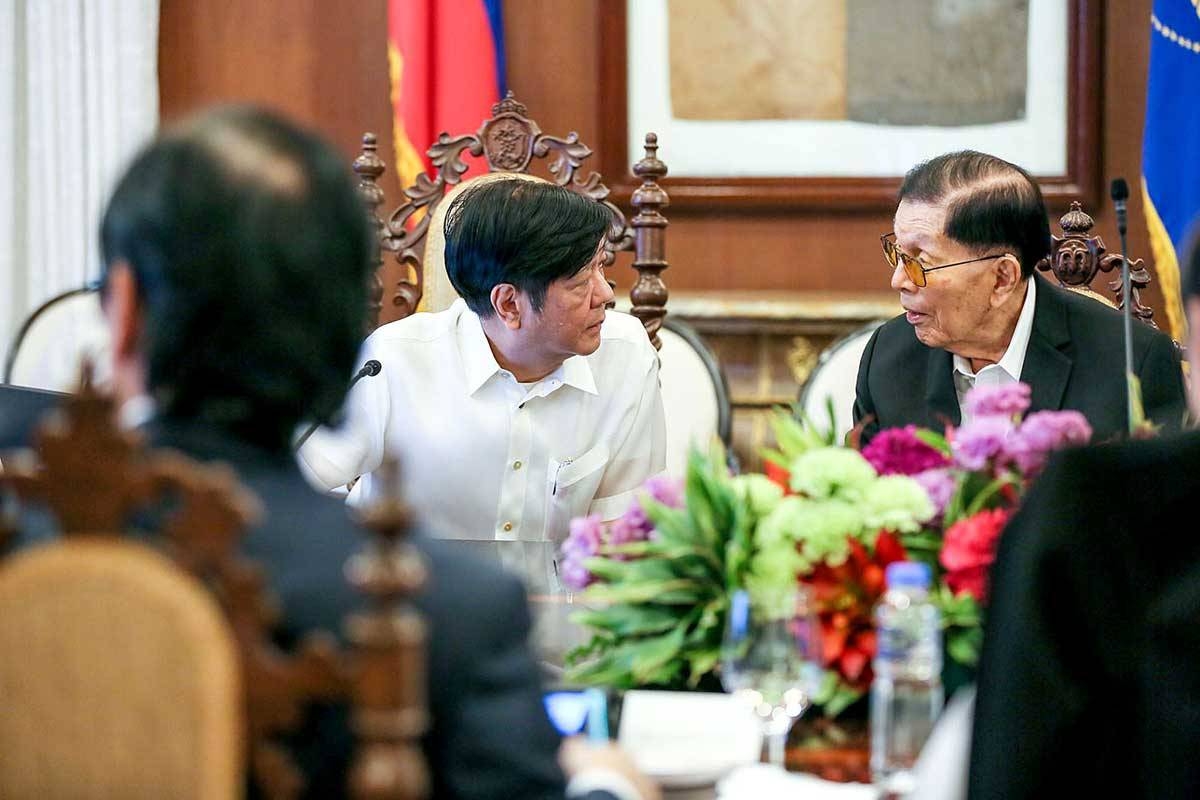The ongoing dispute between the Senate and the House of Representatives over Charter change (Cha-cha) can only be resolved by President Ferdinand Marcos Jr., according to former Senate presidents Franklin Drilon and Vicente “Tito” Sotto 3rd. The proposal to amend the 1987 Constitution has caused tensions between the two parties, but there is hope for mediation.
Senator Jose “Jinggoy” Estrada has expressed his willingness to mediate and settle the differences between the Senate and the House. However, both Drilon and Sotto believe that only the President has the authority to put an end to this escalating conflict. In a text message, Drilon stated, “I find it appropriate for someone outside the institution to mediate. The President can do it.” Sotto echoed this sentiment in a separate text message, saying, “The only person who could put a stop to this is the President.”
Senator Maria Imelda Josefa “Imee” Marcos, the President’s eldest sister, believes that it would be wise to let the Senate’s leadership handle the matter. She emphasized the importance of leaving the decision-making process to Senate President Juan Miguel Zubiri, who has conducted face-to-face meetings to address the disagreements. Imee Marcos also pointed out that the President had already mediated between Zubiri and House Speaker Ferdinand Martin Romualdez in early January, prior to the filing of Resolution of Both Houses 6, which aims to amend certain economic provisions in the Charter.
Drilon expressed his disappointment in the quarrel between the Senate and the House, describing it as unfortunate and disruptive. He stressed the importance of maintaining the check and balance between the two institutions while highlighting the need for interparliamentary courtesy to ensure effective governance. Sotto attributed the bickering to the people’s initiative for Charter change, which he believes is causing harm to the country. He stated, “The Senate is obviously reacting to it because it can no longer be denied that some members of the House of Representatives are pushing it.”
Drilon emphasized that public interest is not being served amidst this conflict and suggested that sincere dialogue is the key to resolving any misunderstandings. The President has already taken steps to address the matter by meeting with Zubiri and Romualdez in Malacañang on January 11, following the vin d’honneur. During the meeting, Zubiri defended the Senate’s position, stating that the plan proposed by the House is unconstitutional due to the country’s bicameral system of government. Zubiri expressed gratitude for the President’s comment, acknowledging that the people’s initiative is divisive. The President suggested that the Senate lead the discussions on economic provisions, allowing the House to adopt their version.
The House leadership has expressed openness to dialogue with senators. House Majority Leader Manuel Jose “Mannix” Dalipe assured that Speaker Ferdinand Martin Romualdez would extend a hand of friendship. Dalipe stated, “No doubt, if the Senate, the Senate president, wants to meet with the speaker of the House, the speaker would always be willing.”
Meanwhile, Senator Francis Joseph “Chiz” Escudero has called on President Marcos to rein in his cousin, Romualdez. This call comes after the House of Representatives approved a resolution supporting Romualdez and defending the House against what they perceive as interference and violation of interparliamentary courtesy by the Senate. Escudero questioned why the search for the truth behind the people’s initiative would be seen as an assault. He emphasized the importance of standing up for what is true, right, moral, and just.
President Bongbong Marcos has urged both houses of Congress to have a “ceasefire.” However, if his own cousin and political ally won’t heed his call, it raises concerns about the effectiveness of his plea.
In conclusion, the escalating conflict between the Senate and the House of Representatives over Charter change can only be resolved by President Ferdinand Marcos Jr. While some senators are willing to mediate, the ultimate authority lies with the President. It is crucial for all parties involved to engage in sincere dialogue and prioritize the public interest. The President’s previous mediation efforts have shown promise, and it is essential for the Senate and the House to work together to find a resolution that benefits the country as a whole.







